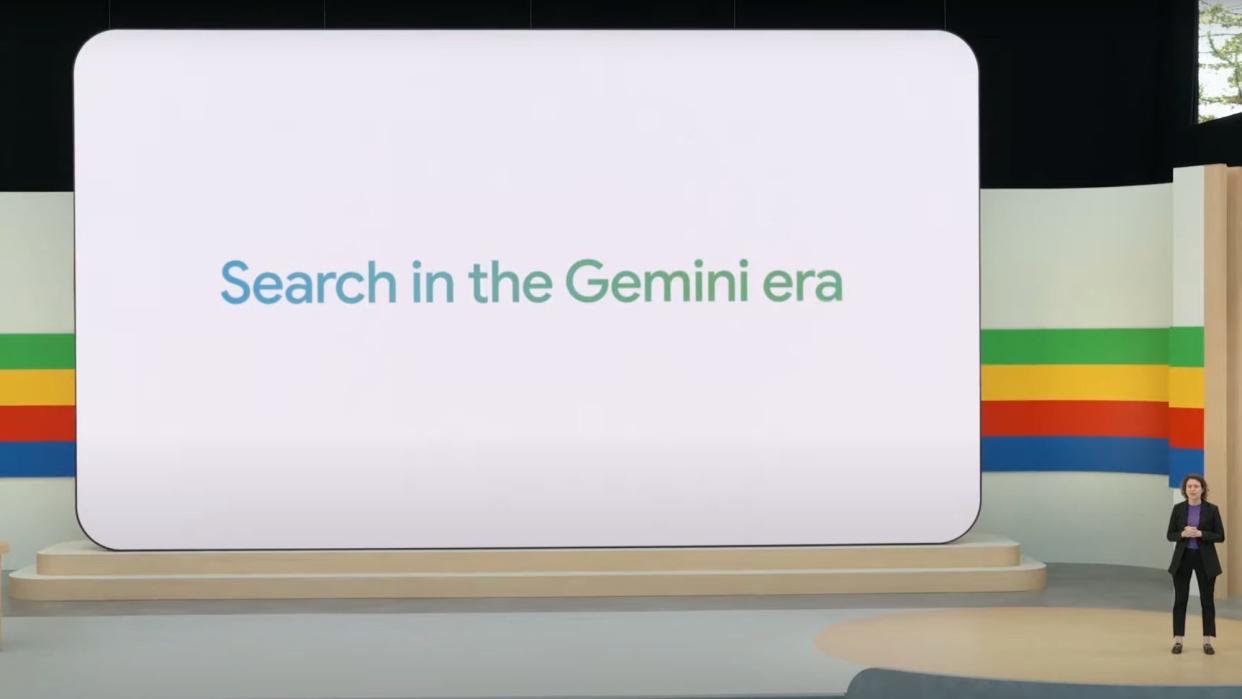What are "agentive capabilities?" The buzzword at the heart of the future of Google Search

During Google's I/O 2024 event, the expression "agentive capabilities" kept popping up, and its meaning indicates a big future of how Gemini will change various Google products like Search, Drive, Sheets, Gmail, and more.
Agentive capabilities describes the new Gemini models in a way that sets them apart from other AI models, even if they're doing the same things. But Google leaders on stage at I/O didn't use this term to usher in the "Gemini era" — it has history, too.
According to Google's current generative AI feature in Search, agentive (or agentic) capabilities are "the basic mental abilities that allow people to proactively influence their external context and functioning."
The term "agentic" was coined in the late 1980s by Albert Bandura, a Stanford University psychologist, to "describe people who are self-organizing, self-reflecting, self-regulated, and proactive."
Put simply, Google describes its Search tool, powered by the new Gemini, as more human-like and contextual in its thinking patterns. It is able to carry out multi-step reasoning and thorough planning and understand the context in new ways.

Liz Reid, Google's new head of search, says that a new Gemini model customized for Google search has three differentiators: Over a "trillion facts about people, places, and things;" its ranking and quality systems; and "the power of Gemini, which unlocks new agentive capabilities — right within search."
Sissie Hsiao, Vice President and General Manager of Gemini experiences and Google Assistant, described agentive capabilities in September 2023 as something like a personal assistant when referring to Gemini, then called Bard.
How will agentive capabilities work in Search?
With its new agentive capabilities, Search will be able to tackle complex queries with multiple pieces of information. Instead of having to research multiple separate questions, either manually or with AI, you can ask everything at once. Search "figures out which [parts] to solve and in what order," according to Liz Reid in her speech at Google I/O 2024.
One of my favorite ways this multi-step reasoning appears in the new Gemini-powered Search is with meal planning — or planning of any sort.
As an example, you can ask Google to create a seven-day meal plan for you and add as many identifiers as you want, like "as a college student on a budget" or "that can be microwaved."
Once the meal plan is created for you—in seconds, Google showed in a live demo on Tuesday—you can replace individual meals, add extra filters to adjust the meal plan or an individual meal and export the meal plan or an AI-created grocery list.
Reid also said on Tuesday that Google will use contextual models, like the time of the year, to suggest restaurants in search results (like restaurants with rooftop patios).
"AI-organized search results pages will start with dining and recipes and [come] to movies, music, books, hotels, shopping, and more," Reid said. She did not list dates for these roll-outs, though.

Using the newly announced AI Overview feature in Search will present only the most relevant information, whether you're asking an incredibly simple or frustratingly complex question. You can even film a video of your problem when you ask Search a question, and it'll analyze the video to help find a more specific solution.
One example question Google used in its presentation was, "Why does my candle burn unevenly?" Within seconds, an easy-to-read list with bolded reasons followed by quick explanations populated the top of the page.
Another search entry of "explain how temperature impacts baking" prompted an in-depth explanation of the science behind temperature in baking. AI Overview offered multiple answer variations, including one titled Simpler and another labeled Break it down.


All in all, the message surrounding 'agentive capablities' in Search with Gemini kept circling back to this: "Google will do the Googling for you."
Rather than pouring hours of research into planning the perfect vacation or meal plan, or finding a local yoga studio or a babysitter, try out AI Overview when it rolls out "in the coming weeks."
Believe me, as someone who loves to research and plan things, it feels uncomfortable to entrust that task to AI. But if these new 'agentive capabilities' really would save me a lot of time and stress, it's definitely worth trying.
